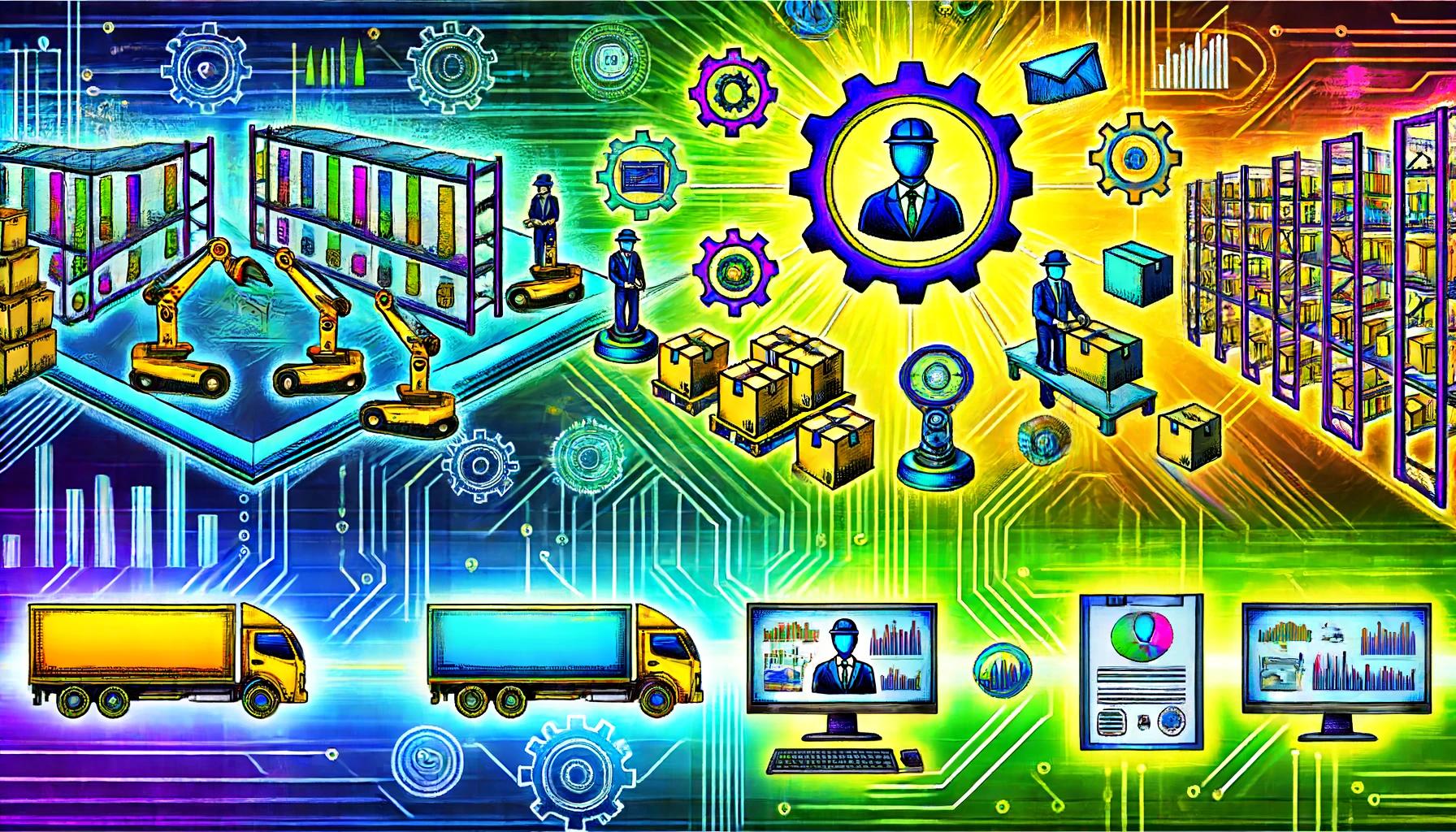Artificial Intelligence (AI) is revolutionizing the landscape of supply chain management (SCM), driving efficiency, innovation, and cost reduction across industries. This article explores the profound impact of AI on supply chain operations, highlighting key technologies, trends, and strategic advantages that businesses can leverage to gain a competitive edge.
Enhancing Demand Forecasting with AI
One of the critical areas where AI is making significant strides is demand forecasting. Traditional forecasting methods often struggle with the complexities of global supply chains, leading to inaccuracies and inefficiencies. AI-powered algorithms analyze vast amounts of data from various sources, including historical sales data, market trends, and external factors such as weather conditions and economic indicators, to provide highly accurate demand forecasts.
Benefits of AI in Demand Forecasting:
- Increased Accuracy: AI models can identify patterns and trends that human analysts might miss, leading to more precise demand predictions.
- Real-time Insights: Machine learning algorithms can process real-time data, allowing businesses to respond quickly to changing market conditions.
- Reduced Costs: Improved forecasting accuracy reduces excess inventory and minimizes stockouts, leading to significant cost savings.
For more on advanced forecasting techniques, check out Supply Chain Quarterly.
Optimizing Inventory Management with AI
Effective inventory management is crucial for minimizing costs and maximizing service levels. AI technologies such as machine learning and predictive analytics are transforming how businesses manage their inventory. AI systems can predict inventory requirements with high accuracy, automate replenishment processes, and optimize stock levels across multiple locations.
Key Features of AI in Inventory Management:
- Predictive Analytics: AI algorithms predict inventory needs based on various factors, including sales trends, seasonality, and supply chain disruptions.
- Automated Replenishment: AI systems automate reordering processes, ensuring that inventory levels are maintained at optimal levels without human intervention.
- Dynamic Pricing: AI-driven dynamic pricing models adjust prices in real-time based on demand, inventory levels, and market conditions, enhancing profitability.
For in-depth insights, visit Harvard Business Review.
Enhancing Supply Chain Visibility with AI
Supply chain visibility is essential for identifying bottlenecks, improving coordination, and enhancing overall efficiency. AI technologies provide real-time tracking, predictive analytics, and advanced data analytics, offering unparalleled visibility across the supply chain. This transparency enables businesses to anticipate disruptions, optimize routes, and improve decision-making processes.
Advantages of AI in Supply Chain Visibility:
- Real-time Tracking: AI-powered systems offer real-time tracking of goods, providing updates on location, condition, and estimated arrival times.
- Predictive Analytics: AI algorithms predict potential disruptions and suggest corrective actions, minimizing the impact of delays and disruptions.
- Data Integration: AI integrates data from various sources, creating a unified view of the supply chain and enhancing decision-making capabilities.
Explore more about supply chain visibility on Forbes.
AI-driven Logistics Optimization
Logistics is a critical component of supply chain management, involving the transportation and warehousing of goods. AI technologies are revolutionizing logistics through route optimization, predictive maintenance, and automated warehousing solutions. These advancements reduce transportation costs, improve delivery times, and enhance the overall efficiency of logistics operations.
Innovations in AI-driven Logistics:
- Route Optimization: AI algorithms analyze traffic patterns, weather conditions, and delivery schedules to optimize routes, reducing fuel consumption and delivery times.
- Predictive Maintenance: AI monitors equipment health and predicts maintenance needs, reducing downtime and extending the lifespan of logistics assets.
- Automated Warehousing: AI-driven robots and automated systems streamline warehousing operations, enhancing speed, accuracy, and operational efficiency.
Learn more about logistics innovations on TechCrunch.
AI and Sustainability in Supply Chain Management
Sustainability is becoming a critical focus for businesses worldwide. AI technologies play a vital role in enhancing sustainability within supply chain management by optimizing resource usage, reducing waste, and minimizing environmental impact. AI-driven solutions help companies achieve their sustainability goals while maintaining efficiency and profitability.
Sustainable Practices Enabled by AI:
- Energy Optimization: AI systems analyze energy consumption patterns and optimize usage, reducing the carbon footprint of supply chain operations.
- Waste Reduction: AI algorithms identify opportunities for reducing waste in production, packaging, and logistics, promoting sustainable practices.
- Sustainable Sourcing: AI assists in sourcing materials sustainably, ensuring compliance with environmental standards and promoting ethical practices.
For insights on AI and sustainability, visit Environmental Leader.
The Future of AI in Supply Chain Management
The future of supply chain management is heavily influenced by advancements in AI technologies. From enhancing efficiency and reducing costs to promoting sustainability and improving customer satisfaction, AI is set to redefine the supply chain landscape. Emerging technologies such as blockchain, Internet of Things (IoT), and advanced robotics are further amplifying the capabilities of AI in supply chain management.
Trends Shaping the Future:
- Integration with IoT: AI combined with IoT enables real-time data collection and analysis, enhancing supply chain visibility and automation.
- Advanced Robotics: AI-driven robotics are transforming warehousing and logistics, enhancing operational efficiency and reducing labor costs.
- Blockchain for Transparency: Blockchain technology, integrated with AI, enhances transparency and security in supply chain transactions, ensuring trust and traceability.
For the latest trends, explore McKinsey & Company.
Conclusion
Artificial Intelligence is undeniably transforming supply chain management, offering unprecedented opportunities for efficiency, cost reduction, and innovation. By leveraging AI technologies, businesses can enhance demand forecasting, optimize inventory management, improve supply chain visibility, and revolutionize logistics operations. As AI continues to evolve, its impact on supply chain management will only grow, driving future advancements and setting new standards in the industry.
For a deeper dive into AI’s impact on supply chains, check out Gartner.

Leave a Reply